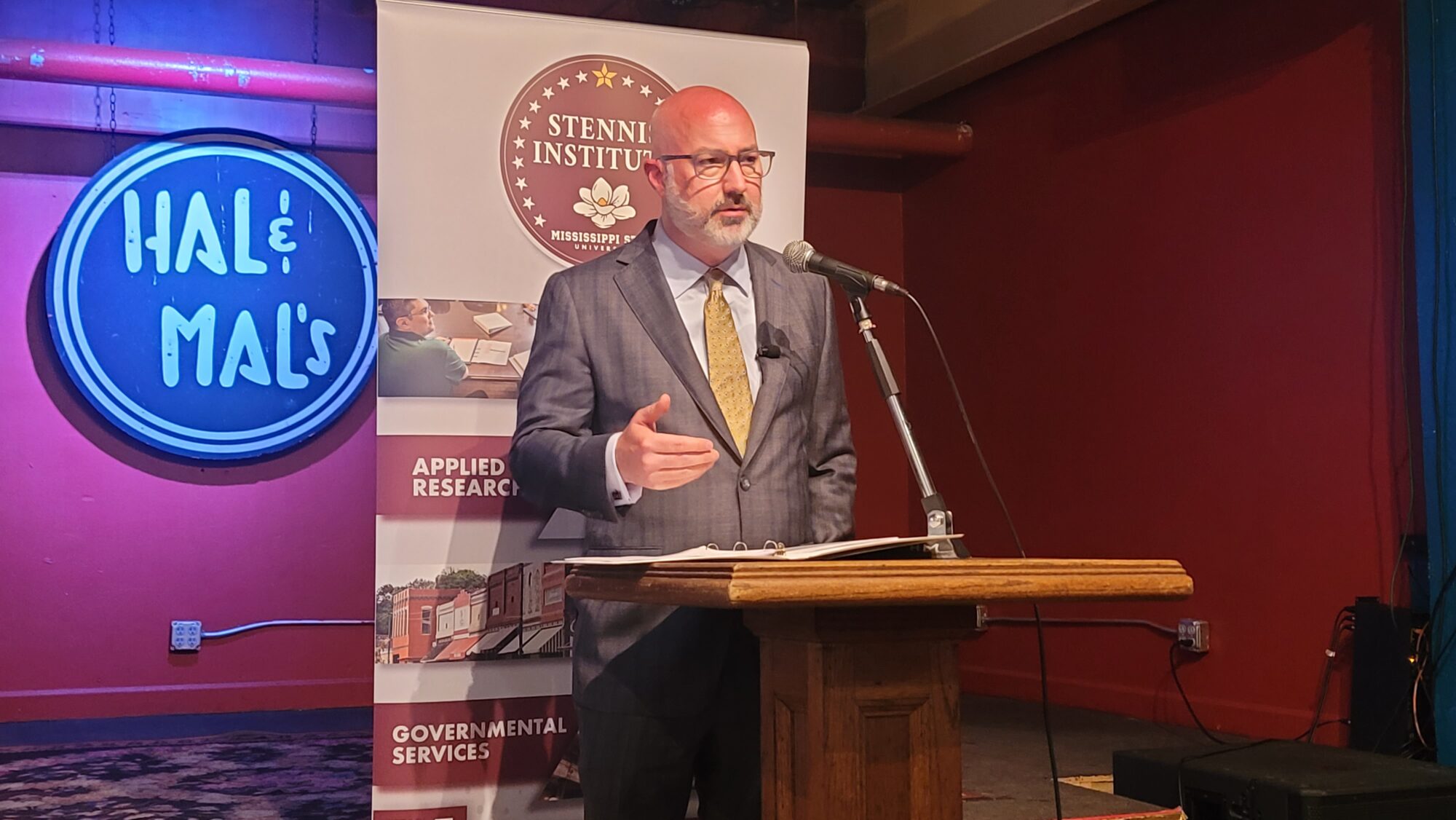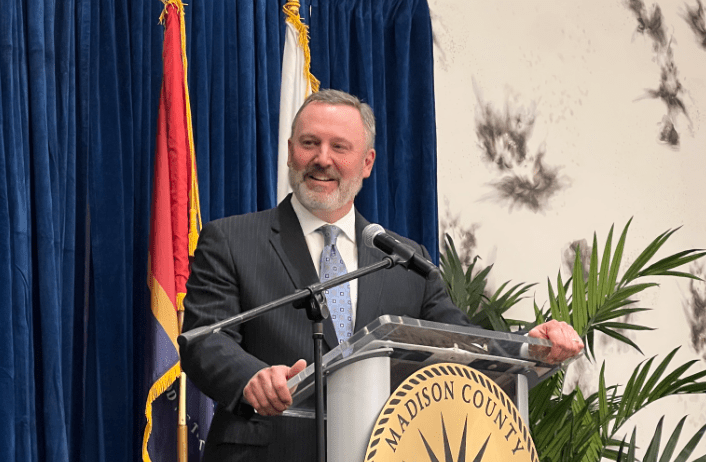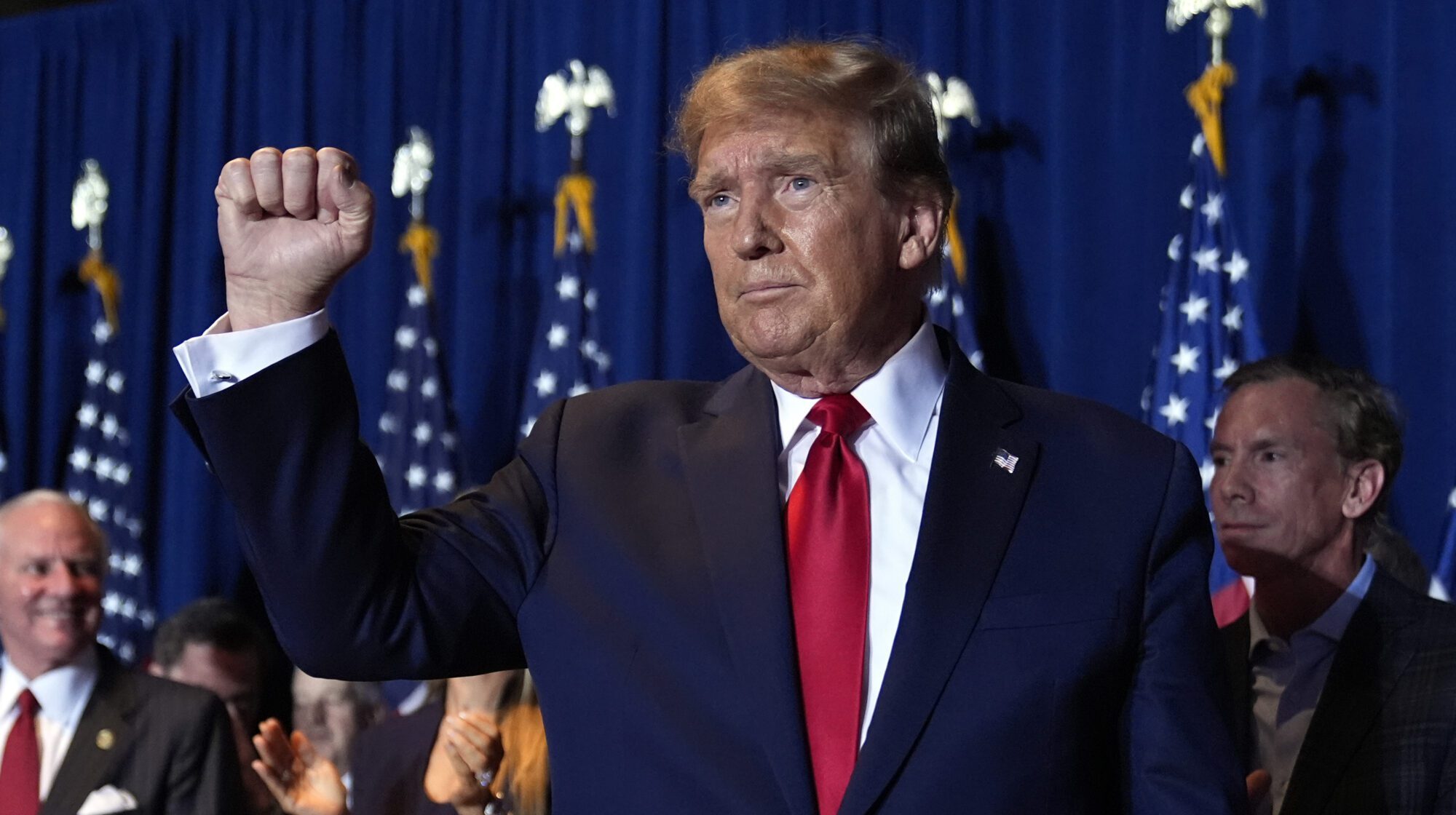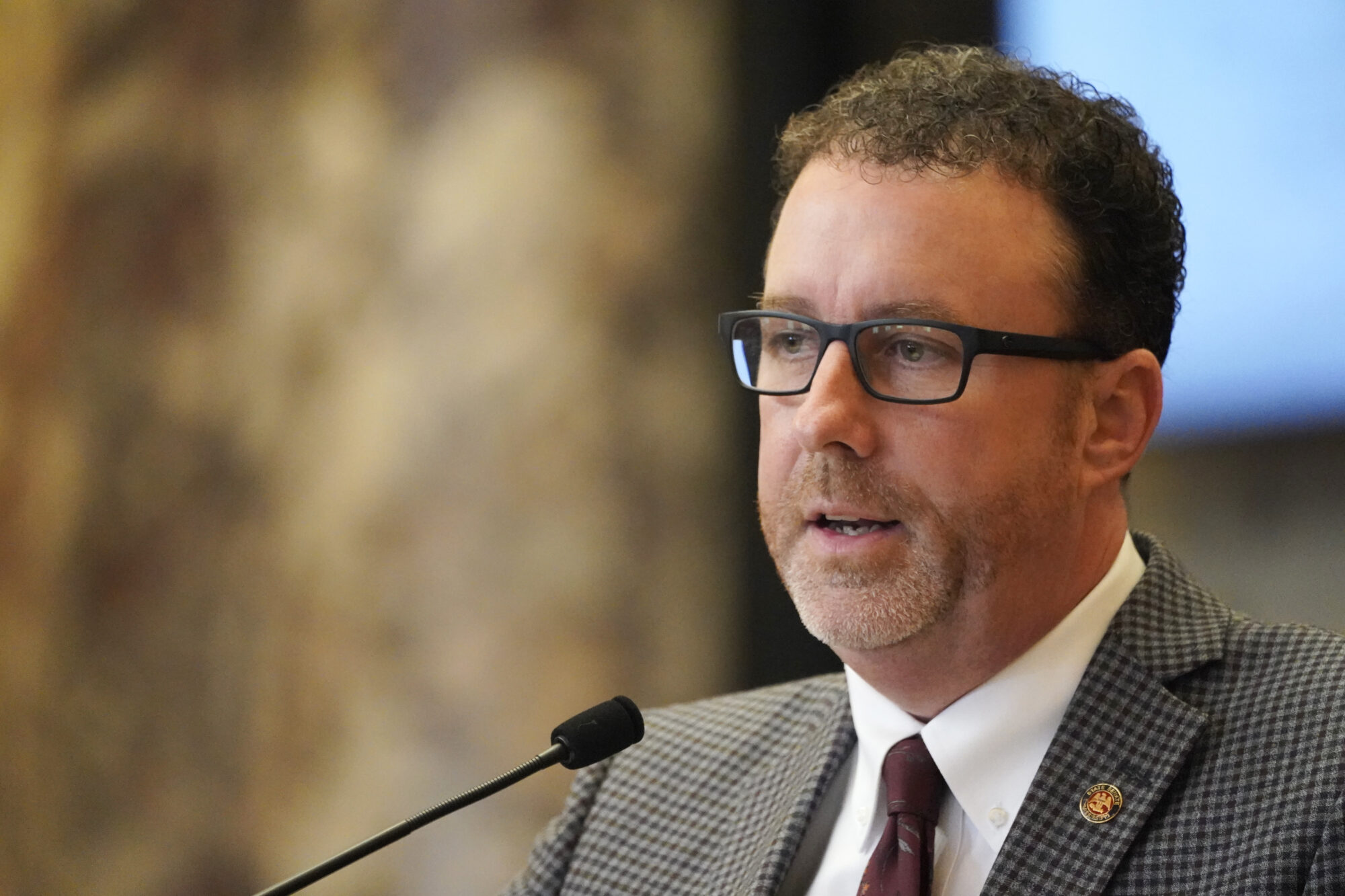
Mississippi Department of Transportation Executive Director Brad White speaks during a recent Stennis Capitol Press Forum. Photo by Jeremy Pittari | Magnolia Tribune
- Additional funding provided last year may not last as long as expected, MDOT Executive Director Brad White said.
Dwindling staff, inflation, and the need for a more diversified revenue stream are some of the hurdles being faced by the Mississippi Department of Transportation (MDOT) to ensure the agency is able to not only respond to maintenance needs, but plan for the future.
Brad White, Executive Director of MDOT, spoke during last week’s Stennis Capitol Press Forum where he described the agency’s work to overcome those hurdles, including the salary inequity that has led to less maintenance staff and in-house engineers. The salary inequities mean maintenance crews cover more than one county, and engineers working on MDOT projects are not always employed by MDOT. The department has to outsource that work to private engineering firms.
“We were able to do that internally because we had appropriate staff. But again, due to the salary inequities, we began losing our engineering staff over the years and with that, our dependency on engineering firms continued to grow,” White told the press gathered at the Monday event. “Now, we spend about $70 million a year on engineering firms that I believe if we were able to correct the staff salaries, we would be able to build back our engineering staff and deliver that product to the taxpayers at a better price and be able to get more money back to the projects themselves.”
To address the salary problem, MDOT is taking advantage of the State Personnel Board’s Project SEC2, which created a fair compensation structure capable of recruiting, retaining and building those staffing numbers. It went into effect on January 1, 2022.
MDOT is also prepared to address the needs of transportation hubs that do not run on four wheels through some additional funding.
“We are the Mississippi Department of Transportation, not the old highway department. To that end, last year in the legislative session, the Legislature created a strategic multimodal investment fund that would be administered by MDOT,” White explained. “The initial appropriation to this was $30 million with $10 million earmarked for ports and waterways. The overarching purpose of this fund is to increase the capacity and support of the long-term economic growth in the state for our airports and our rails and our water ports and waterways by leveraging federal dollars.”
Some of that funding came during the 2023 legislative session where nearly $2 billion was allocated to MDOT, part of which was a supplemental $620 appropriation for large construction projects, the repair of bridges and roads, and the $30 million in multimodal funds White mentioned.
A large part of that $620 million, about $450 million, along with federal funding, has allowed MDOT to restart its capacity program. This will help the agency not only focus on the maintenance of existing roads, but plan for future projects.
White described MDOT as a state agency that implements the Federal Highway Administration program. As such they have to keep about $150 million in a special account that pays for projects up front and then seeks federal reimbursement in order to get the most federal funding possible.
He is relieved MDOT was able to restart the capacity program, allowing MDOT to do more than just maintenance work.
“It’s the program that MDOT has that is meant to continue adding efficiency to the system. Ideally what the Feds want us to do is to be able to take traffic projections looking 20 years into the future and to make plans to try to build out a system that is planning for the future rather than reacting to the problems that you have now,” White described.
But inflation is eating away at the extra funding due to increases in labor and the rising price of a ton of asphalt, resulting in less roads being paved. White is concerned the capacity program could be in danger.
“Which would make us a maintenance state all over again. People may ask why that’s a problem. When you go back and you look at what happened after this happened 12 years ago, that’s the reason why we ended up with places like Highway 49 in Rankin County,” White said.
With electric vehicles becoming more and more popular, and as more charging stations ease range anxiety, White feels something needs to be done to address the declining fuel tax. Drivers of electric vehicles don’t pay a fuel tax since they don’t use fuel. Instead, EV owners pay a higher annual registration tax. For instance, in Mississippi EV owners pay an additional $150 in registration fees.
Consideration of raising the fuel tax to make up for the shortfall EVs cause might not be the answer because as White said there aren’t many politicians who support raising taxes from a practical standpoint. According to him, one extra cent in the fuel tax would mean an additional $23 million. Mississippi’s gas tax, at $0.18 cents per gallon, is one of the lowest in the nation, with only Alaska coming in lower at about $0.08 cents.
There are some bills in the Legislature that may help, such as State Rep. Trey Lamar’s HB 1128. If it becomes law, the legislation change the way lottery proceeds are divided. Instead of the first $80 million collected going to MDOT and the excess then going to education, Lamar’s bill would split the total proceeds, assigning 80 percent to MDOT and 20 percent to education. White said that if that bill was law last year, MDOT would have received an additional $20 million in funding. The bill has not made it out of committee as of yet.
“When you look at the paving backlog that we have, in order to hit ideal numbers, you’re talking about a $400 million deficit that we’re running in paving alone. That’s not accounting for the other programs that we implement. I don’t think you can raise the fuel tax enough to make that up. I do believe the smart thing to do is start looking at a more diversified approach,” White said. “But even after that, I think the right philosophy in government ought to be that they look at the revenue coming in, they look at what the core function of government is, what we’re supposed to deliver to the people, what the people expect from their government, take care of those needs before you start getting into the wants and things like that. I believe that you could take care of the needs we have within our existing revenue stream.”










